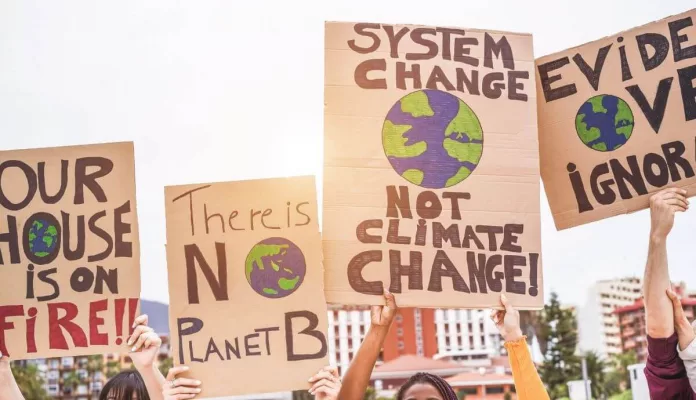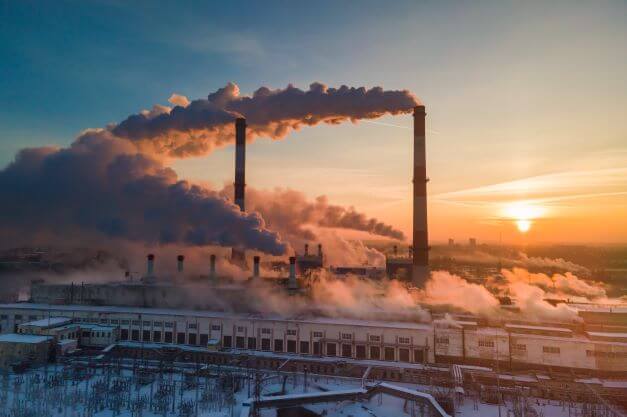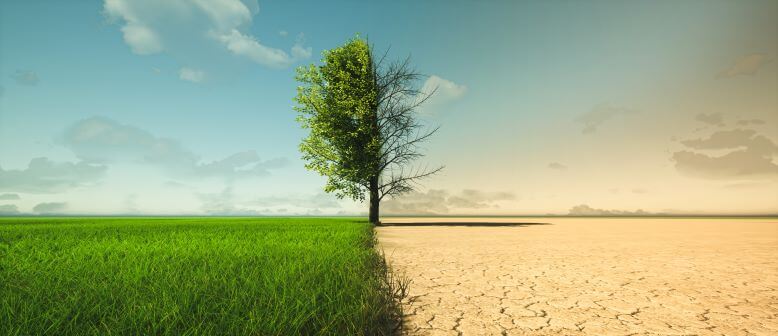
First Published: 21st December 2022, written by Olivia Doonan | Last Updated on 6th April 2024 | Reviewed and Edited by Chloe Safilo
Climate change is a significant concern for everyone the world today, with many experts considering it the most pressing global issue. Industrial processes like transportation and electricity generation are major sources of fossil fuel consumption. However, what are the most damaging activities resulting in the warming of the planet and various environmental changes which create issues growing crops and destroying the ecosystem beyond repair?
Carbon Released Through Industrial Activity
There is no doubt it is human activities causing that global warming which have a direct impact on the Earth’s atmosphere and climate system. This includes the burning of fossil fuels in factories and mass pollution in the rivers.
They are mined, refined, and burned to produce energy. The by-products of these processes trap heat from the sun, causing the temperature of the planet to rise. Transportation, electricity generation, and other major industrial processes are some of the primary sources of fossil fuel consumption.
And why does the increasing global temperature matter? The warmer climate melts the polar ice caps, resulting in a sea level rise. And an increase in the global average surface temperature impacts our ability to grow crops and farm.

Food Production Processes
Agriculture is another sector that contributes to climate change. Agricultural endeavours encourage harmful practices, destroying ecosystems for the sake of food production. These practices, such as the overuse of fertilizers, and methane emissions from livestock, contribute to the increase in greenhouse gases.
Deforestation is the cutting down of vast swathes of forest and jungle. One primary reason is to make way for farmland. However, wooded areas are very important to the Earth. Trees are the backbone of the Earth’s ability to absorb carbon dioxide which is poisonous to humans.
The Fast Fashion Industry
The production of clothing has a significant impact on the environment, and fast fashion is a major contributor to this impact due to it’s short-term use. Constantly introducing new styles and encouraging consumers to buy more clothes often leads to overconsumption and increased landfills.
Fast fashion’s high production volume often leads to a lot of waste. The energy used in the production of clothing also contributes to global greenhouse gas emissions. To learn more about the effect of fast fashion on climate change, click the link here.
Ultimately the factories using water in clothing production is dumped into our rivers, which leads to ocean acidification and a decrease of yet another food source in fish.
Commercial And Urban Activity
The production and transportation of goods, as well as urbanization, also contribute to climate change. Manufacturing products generate greenhouse gases. This is especially true for products made from non-renewable resources.
In addition, the logistics and transportation of goods by most means of transport release emissions into the atmosphere. Large-scale freight, most often by air or sea, is the largest contributor to emissions. Urbanization, or the expansion of cities, often involves paving over natural habitats, which reduces the amount of land available for carbon storage.

What You Can Do
While these large-scale activities can seem daunting to stop, there are steps that individuals can take to mitigate their impact on global climate change. Agencies like Greenly are devoted to providing expert advice on how we can all reduce our emissions and consumption.
Our approach to fashion consumerism is an obvious one, as it’s within our control. And you can adopt sustainable agricultural practices and reduce meat and dairy consumption.
Good ways to start other than shopping habits is what we do in our spare time. This includes volunteering to preserve natural habitats and other conservation efforts to slow the change to the global climate system. Plus you can join any protests to pressure your government to tackle climate change.
Ultimately, addressing climate change requires the cooperation and efforts of individuals, businesses, and governments around the world. We all must take steps to reduce our impact on the environment and transition to more sustainable practices.






















































